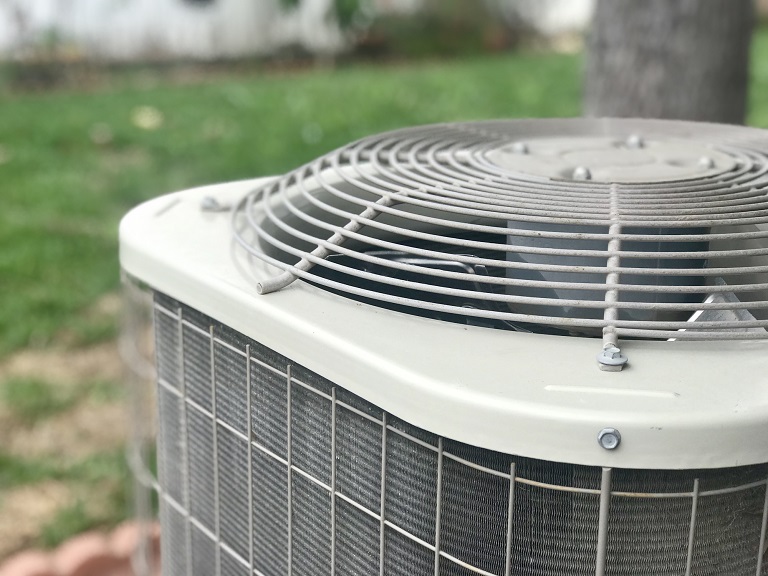
Ductwork repair costs vary by the type of fix needed and the materials involved. The duct's location and accessibility also impact pricing.
The higher the EER, the more efficient your air conditioner


EER measures AC unit efficiency under high temperatures.
SEER measures AC unit efficiency over an average cooling season.
A higher EER or SEER indicates it’s a more efficient AC unit.
Air conditioners are required to display SEER, but not EER.
SEER is more relevant for homeowners who don’t live in extremely warm climates.
If you’re in the market for a new air conditioner, you may have seen a lot of acronyms thrown around, causing you to question what is EER in HVAC terminology. The EER number can provide homeowners with a lot of insight into the energy efficiency of the air conditioner, especially in climates with high temperatures.
Learn more about what EER means in HVAC, how it’s used, and when homeowners should pay attention to this specification.

An HVAC Energy Efficiency Ratio, also known as EER, is the ratio of an AC unit’s cooling capacity (measured in British thermal units or BTUs) to the energy input (measured in watts). It calculates the unit’s overall cooling efficiency at an outdoor temperature of 95 degrees. The more efficient the air conditioner, the higher its EER number.
This rating also takes into account humidity removal, and it's useful because it shows how an air conditioner performs under the maximum cooling setting.
EER isn’t the only measurement of an air conditioner’s efficiency. AC units are also measured by a seasonal energy efficiency ratio (SEER).
While similar to EER, this rating looks at an AC unit’s cooling capacity during an average cooling season divided by the total electric input. Instead of one steady temperature, SEER is calculated using a range of outdoor temperatures that may come up during the cooling season.
EER measures efficiency in a moment in time, while SEER measures energy usage over a longer time frame. For most homeowners, SEER is a more important number to pay attention to for determining long-term energy usage.
However, EER can be a helpful metric for homeowners who live in climates where the temperature regularly hits 95 degrees since AC units need to work much harder under high temperatures. The U.S. government’s HVAC efficiency standards only mandates that air conditioners display SEER, but some units also share EER. Both ratings show homeowners how efficiently the AC unit will run, but it’s important not to compare EER ratings to SEER ratings since each looks at different criteria.
While EER can provide a snapshot of how efficiently an AC unit will run, most homeowners should consider SEER first unless they live in an extremely warm area. For both ratings, a higher number indicates a more efficient air conditioner, which can lead to energy cost savings over time.
Work with your local air conditioner pros to understand what level of EER or SEER is right for your home and your budget. The federal government and some municipalities also offer tax credits for installing energy-efficient home appliances, so check with your HVAC company or local offices to see if you qualify.
Both ratios indicate efficiency levels in your air conditioner, and a more efficient unit can lead to lower energy costs for your home. However, AC units with high EER and SEER may cost more upfront. For example, a 16 SEER AC can cost up to $3,000 more to install than a 14 SEER unit. However, lower electricity bills over time will make the initial investment worth it over the product’s lifetime.
You can use online energy efficiency calculators to help predict how much money you’ll save on energy costs with equipment carrying different SEER ratings.
From average costs to expert advice, get all the answers you need to get your job done.

Ductwork repair costs vary by the type of fix needed and the materials involved. The duct's location and accessibility also impact pricing.

If your air conditioning unit isn’t functioning properly, you might need an AC recharge. Our guide will detail what a typical AC recharge cost looks like.

Find out the average humidifier repair cost, what impacts pricing, and how to save. Get expert tips to budget for your humidifier repair.

Learn how to add Freon to your AC unit with our step-by-step guide, and keep your home cool with a properly functioning AC unit.

Discover the average air handler replacement cost, including labor and materials, plus expert tips to help you budget and save on your HVAC upgrade.

When you notice hot and cold zones in your home, it pays to learn how to balance airflow in your ducts to even out the temperature.